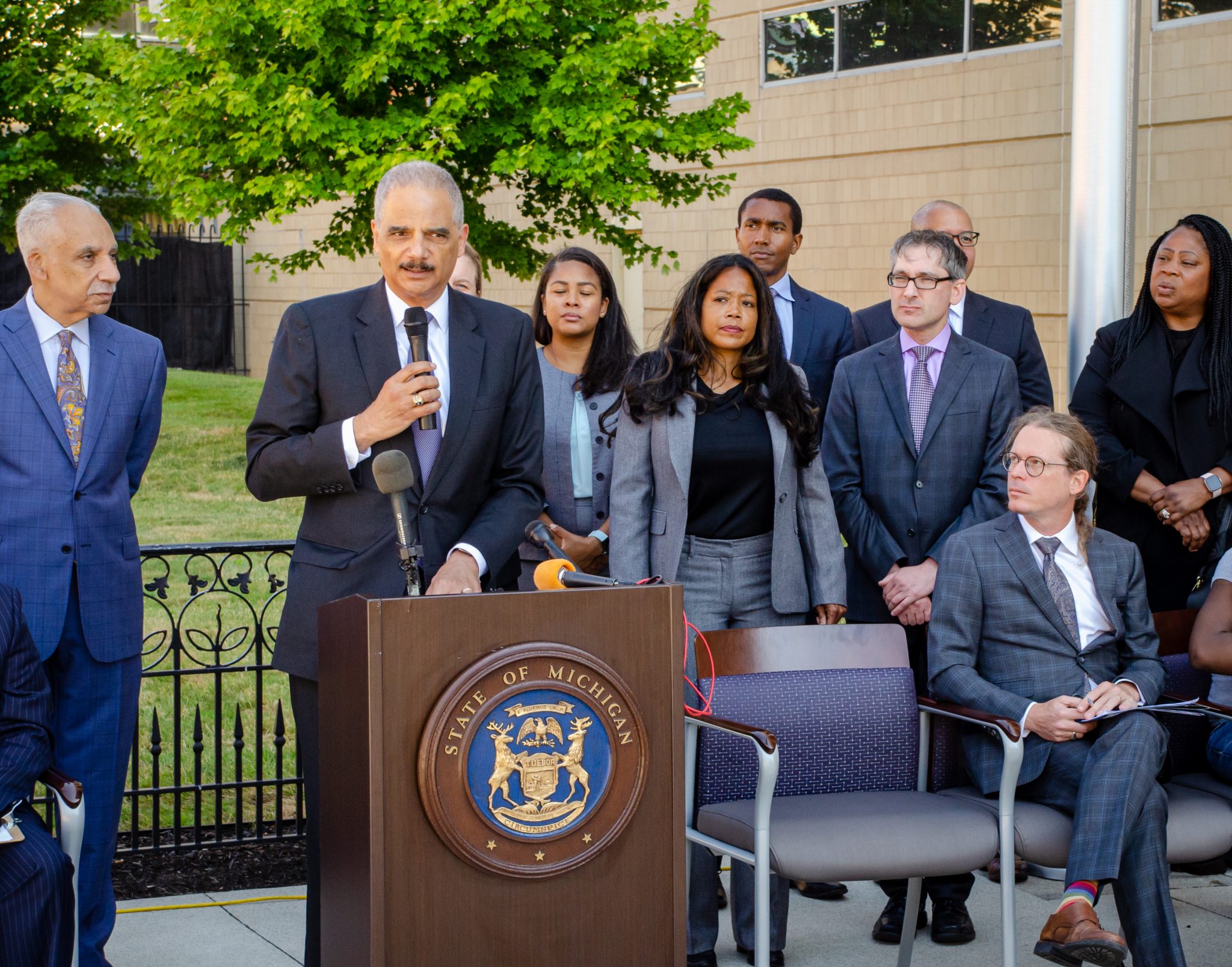Changes aim to make cash bail system more equitable for low-level offenders
Under a new agreement with 36th District Court in Detroit, every defendant will have lawyers at arraignment and the court will presume anyone below 200% of the federal poverty level cannot afford cash bail.

Former U.S. Attorney General Eric Holder
There are changes coming to the cash bail system in Detroit. The reforms are intended to make courts more equitable.
Under the agreement reached with the ACLU of Michigan, at 36th District Court every defendant will have counsel at arraignment and the court will presume anyone below 200% of the federal poverty level cannot afford cash bail. Among other changes, an arrest warrant will not be issued for those who miss one hearing and magistrates in the court would also be provided with a person’s full criminal record before deciding on bail.
Starmanie Jackson of Detroit says her inability to pay a $700 cash bail upended her life.
“[I was] unable to call in to work,” Jackson says. “I lost my job at a nursing home because I could not pay my rent. We lost our home. It took me months to recover financially.”
Former U.S. Attorney General Eric Holder says there are two reasons why programs like this one aren’t universal across the country.
“[There’s] a reflexive notion that somehow, someway if we have bail we’re going to keep the American people safe, which is not empirically shown to be true and the bail industry, which tends to fight these kinds of reforms,” Holder says.
Advocates welcome changes to cash bail system
In 2019, the ACLU of Michigan filed a federal lawsuit challenging the cash bail system in Michigan on behalf of seven Detroiters who lost jobs, housing and parental rights after not being able to afford to stay out of jail.
Criminal justice reform advocates say they hope this program spreads to the rest of Michigan. Addressing concerns that violent offenders would be put back on the street, ACLU of Michigan Attorney Phil Mayor says the agreement is about promoting public safety.
“It ensures that judges are focusing on what they should do, which is an individualized inquiry as to whether or not someone presents a flight risk or a danger to the public rather than trying to impose arbitrary amounts of cash bail,” Mayor says.
Judge William McConico says 36th District Court will next look at providing representation for low-income defendants.
“We’re going to make sure going forward, as a goal, to have lawyers for indigent defendants in all cases, whether it’s criminal, civil or landlord tenant,” McConico says.
Photo credit: Russ McNamara/WDET
Trusted, accurate, up-to-date.
WDET strives to make our journalism accessible to everyone. As a public media institution, we maintain our journalistic integrity through independent support from readers like you. If you value WDET as your source of news, music and conversation, please make a gift today.

